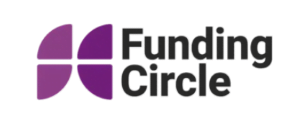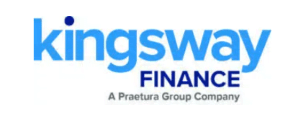Home – Business Finance Guides – Asset Finance – Asset Finance vs Hire Purchase – A Complete Guide for UK Businesses
When you are running a business – whether you are a Sole Trader, limited company, or just setting up shop – getting your hands on the right tools, vehicles, or business assets can be pricey, and we understand this.
That is where asset financing comes in.
For example, it tends to be a good way of spreading the cost of the asset you are interested in over time – instead of paying everything in one big chunk.
Two of the main types of asset finance you will often hear about are Asset Finance and Hire Purchase.
They might sound similar, but there are key differences – especially when it comes to ownership of the asset, your balance sheet, and what happens at the end of the agreement.
So, let us break it down in simple terms for you to help you learn the differences and which option is right for you.
Then if we can help further, our team is on hand to help you.
What Is Asset Finance?
Asset finance for example, is a broad term.
It simply means borrowing money to buy or lease new equipment or assets your business needs.
This could be anything – a business car, machinery, IT gear, or even a newer model of what you already use.
There are several asset finance options under this umbrella, including:
Hire Purchase (HP)
Finance Lease
Operating Lease
Finance Leasing
As a result, each one works slightly differently, and choosing the best option for your business’s needs really does depend on your current situation, financial situation, and whether you want to own the item in the end or not.
What is Hire Purchase?
A Hire Purchase agreement for example, is a bit like renting something with the intention of owning it later on.
Here, you agree to pay for an asset in monthly instalments over an agreed term (like 2 to 5 years).
Then once you have made your final payment – or sometimes a small extra balloon payment – you will become the full legal owner.
It is a great choice overall, if you definitely want the asset ownership at the end of the contract.
Find out if Asset Finance is right for you
At Business Finance, we make asset finance simple and stress-free. No more worrying about finding the right ideal — we do all the hard work for you. Our team is here to secure the best finance option that suits your business needs.
Want to know how much you could borrow and what your monthly repayments might be?
No problem, Get in touch with our friendly team today, and we’ll be happy to help.
How Does Hire Purchase Work?
Here’s how a typical hire purchase contract works:
✅ Step 1:
You choose your finance provider or finance company, and as a credit broker with a large pool of providers available, and a dedicated team of qualified finance experts available who understand all the ins and outs of each type of business finance that we offer, are are more than suited to help you get the best deal.
✅ Step 2:
You pay an initial deposit of usually 10-20%.
✅ Step 3:
Next, you make monthly repayments over a fixed period as set out in your finance agreement.
✅ Step 4:
Then, at the end of the financing term, you either pay a small fee and own the asset, or it is transferred to you automatically, depending on your contract.

Finance Lease vs Hire Purchase – What’s the Difference?
What you need to know here is that with a finance lease, you do not get ownership at the end of the contract.
Instead, you simply pay to use the asset for an agreed period, and at the end of the agreement, depending on your agreement, the asset is either:
Returned to the leasing company
Sold, with some of the sale price coming back to you
Released on a rolling basis
As a result, you should think of this as more like a long-term rental, but you still carry some responsibility for the asset, like maintenance and asset depreciation during your contract, for example.
Asset Finance vs Hire Purchase Compared
| Feature | Hire Purchase | Finance Lease |
|---|---|---|
| Ownership of the Asset | Yes – after final payment | No – remains with finance company |
| Use of the Asset | Full use during term | Full use during lease term |
| End of the Term | Asset becomes yours | Asset returned or re-leased |
| Initial Deposit | Usually required | May be lower than HP |
| Balance Sheet Impact | Asset listed on balance sheet | Asset may appear depending on lease type |
| Tax Benefits | Capital allowances available | Rentals may be tax deductible |
| Capital Outlay | Higher upfront costs | Lower initial costs |
| Final Payment | May include balloon payment | No – asset returned or sold |
| Best for… | Long-term asset use & ownership | Short-term use or upgrading regularly |
How Does This Affect Your Business Finance?
As you can see, both asset finance solutions give you a lot of flexibility, while also reducing your upfront costs, and make managing your cash flow much easier as well.
They are also ideal if you are aiming for business growth but want to avoid using all your savings to achieve it.
This is all while both can be used whether you are a limited company, sole trader, or even if you’re starting to explore your options when it comes to trade finance for instance.
Pros and Cons of Hire Purchase
| Benefits of Hire Purchase | Disadvantages of Hire Purchase |
|---|---|
| You own the asset at the end | You might need a bigger initial deposit |
| You can claim capital allowances | Total cost (including interest payments) may be higher than buying outright |
| Ideal for items with a long life span (like vehicles or machinery) | You’re responsible for upkeep and asset depreciation |
| Spreads costs into easy monthly repayments | If you fall into financial difficulty, you could lose the asset |
| Helps build up your company’s existing assets |
What About Operating Leases?
You should also not forget about an operating lease if you are interested in this topic, which is another type of asset finance.
For instance, this is even more short-term than hire purchase.
Here, you will never own the item, as it is a bit more like renting. Instead, you hand it back at the end, often when a newer model is available, and take out a new operating lease agreement for that asset instead.
This tends to be great if:
The asset’s value drops quickly (like it does with technology items)
You want to avoid worrying about reselling the asset down the line
You like to keep upgrading often
What Goes on Your Balance Sheet?
What goes on your balance sheet here will depend entirely on the business finance option that you take out.
For example:
- With hire purchase, the asset will appear on your balance sheet from the start, along with the outstanding loan.
- With a finance lease, it might also appear (especially under newer accounting rules).
- With an operating lease, it usually stays off the balance sheet, which might suit some businesses better here.
However, if you are unsure which options is best for you, you should always check with your accountant and our team of finance experts are also on hand to help explain to you how it’ll be recorded as well.
Regulated and Reliable
Whichever asset finance product you decide to go with, you always want to make sure your finance company is authorised by the Financial Conduct Authority (FCA).
Their registered office should be listed clearly on paperwork, and they should explain every detail of your finance agreement.
Here at V4B Business Finance, for example, we are FCA authorised and regulated, and you can be assured that you will only be dealing with a regulated credit broker with us.
Things to Consider to Choose the Right Asset Finance for You
When deciding on what type of asset finance you need, some questions to ask yourself include, for example:
Do I want to own the asset?
Can I afford a deposit and monthly repayments?
Do I want flexibility to upgrade later?
Is the asset likely to lose value quickly?
Do I need the asset short-term or long-term?
For instance, if you want ownership and control, hire purchase might be your best bet here.
However, if instead you are looking to preserve your cash and you do not need to own the item, a finance lease or operating lease might be better.
Our team is also on hand to help you if you know what type of finance option you want, along with if you are still unsure and need some further advice about which one is best suited for your needs as well.
Asset Finance vs Hire Purchase – A Guide on How They Differ Overall
As you can see there really is no one-size-fits-all answer here about which one is right for you – every business is different.
But the good news is that with so many commercial financing options out there, you can really find one that matches your goals, supports your business finance, and keeps you moving forward easily.
So, whether you are buying a fleet of vans, fitting out an office, or replacing your equipment – knowing the difference between asset finance vs hire purchase could make all the difference for you.
If you still have a question, or would like more information to get started, our team of finance experts is also on hand to help you as well.

Find out if Asset Finance is right for you
At Business Finance, we make asset finance simple and stress-free. No more worrying about finding the right ideal — we do all the hard work for you. Our team is here to secure the best finance option that suits your business needs.
If you liked this Comprehensive Guide to Asset Finance in the UK, and you now want to know how much you could borrow and what your monthly repayments might be?
No problem, get in touch with our friendly team today, and we’ll be happy to help.
Meet the Team Behind Business Finance

Trusted Asset Finance Lenders at Your Fingertips
We work closely with some of the UK’s top asset finance lenders, making sure you’ve got the right options for your budget and goals.
Some of our finance lenders include, for instance:









